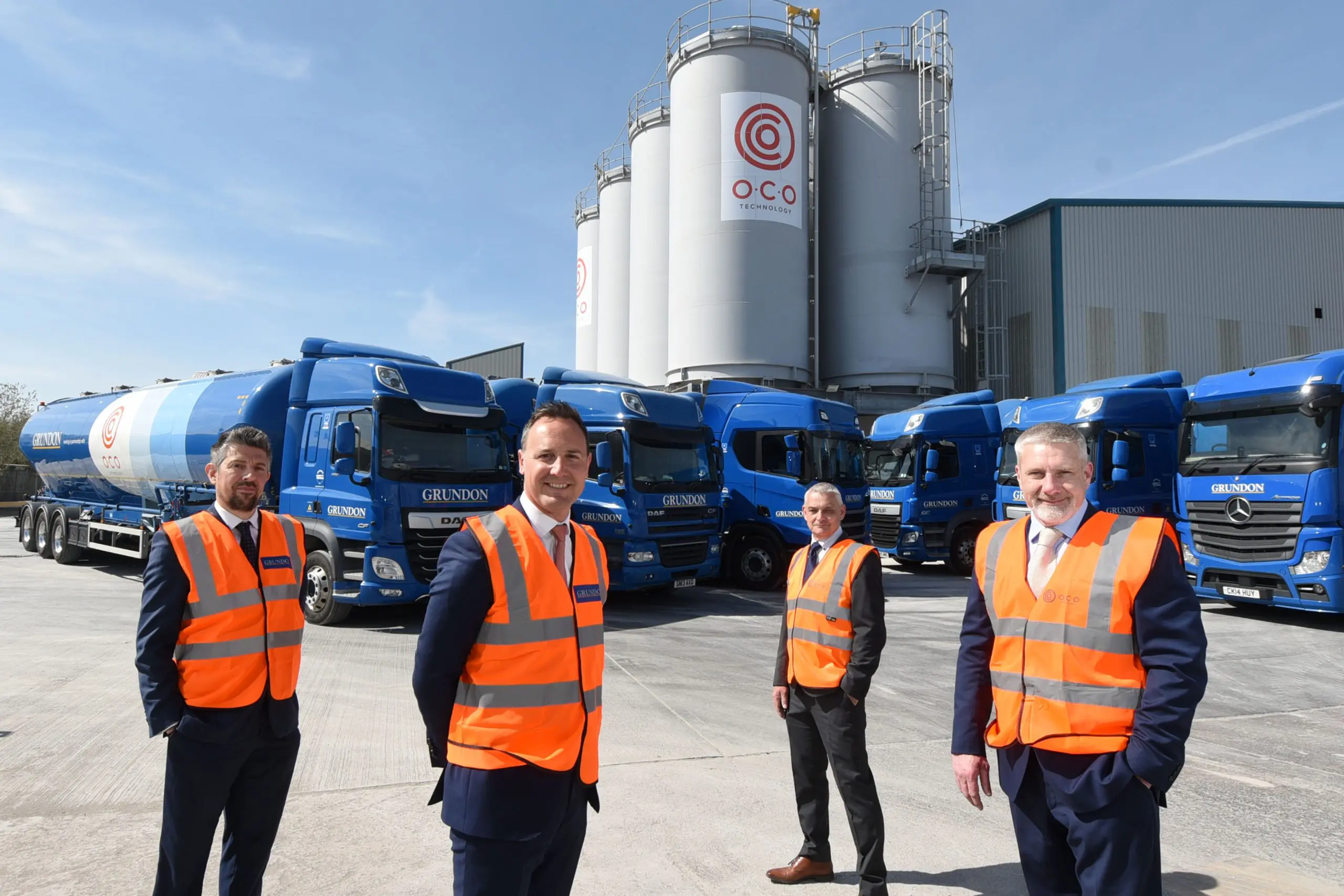Carbon capture specialist O.C.O Technology has reached a significant milestone with the announcement that it has reprocessed half a million tonnes of Air Pollution Control residue (APCr) from the Energy from Waste (EfW) sector.
The figure marks another feather in the cap for the company, which increased its turnover by £4 million over the last year – up to over £20m – and has seen further expansion and investment in both the UK and overseas projects.

Stephen Roscoe, O.C.O’s Technical Director, said: “We are delighted to have passed such an important landmark – in reprocessing this vast amount of APCr we have captured nearly 50,000 tonnes of carbon dioxide, transforming it into a carbon negative aggregate which is already playing a key part in the sustainable buildings of the future.
“While it might have taken us 10 years to reach the 500,000 tonne mark, the carbon capture market is accelerating at such a pace and has such huge potential, that we expect to break through the 1,000,000 tonnes barrier in less than half that time.”
Underlining increased demand, a seventh bespoke powder tanker has been added to the O.C.O transport fleet, allowing a greater proportion of APCr movements to be undertaken ‘in-house’.
Dual branded in O.C.O and Grundon Waste Management colours – Grundon is a major shareholder in the company – the certified CarbonNeutral® tankers collect APCr from EfW facilities and take it for treatment and processing at one of O.C.O’s three UK operations in Leeds, Avonmouth and Suffolk.
There, O.C.O uses its patented Accelerated Carbonation Technology (ACT) process to treat the APCr with waste carbon dioxide gas, enabling the permanent capture of significant amounts of CO2 and producing the carbon negative artificial aggregate known as Manufactured LimeStone (M-LS),
In 2020 alone, O.C.O saw over 310,000 tonnes of M-LS come off the production line for use as a block mix in the construction sector. So far, a total of 21 million blocks have been produced in the UK using the product – the equivalent to 8,000 three-bedroom houses, helping to protect virgin aggregates and improving the sustainability credentials of those developments.
